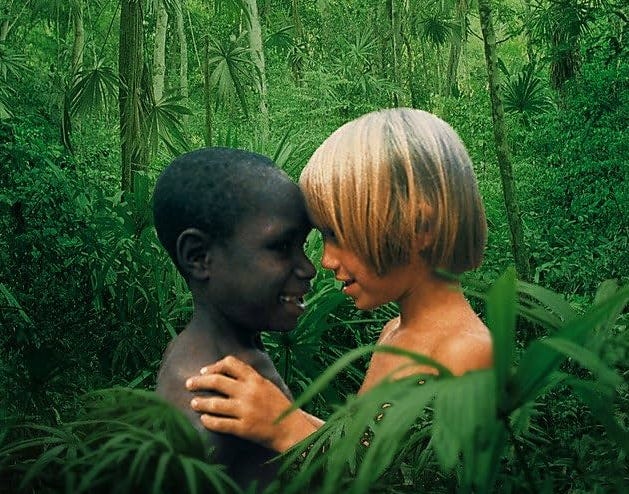The Unusual Journey of Germany's Jungle Girl: A Tale of Survival
Written on
Chapter 1: A Unique Upbringing
In 1989, a teenage girl named Sabine arrived at a boarding school in Switzerland, appearing like an ordinary European with her fair complexion, striking blue-green eyes, and dark hair. Yet, modern life was a complete mystery to her. Concepts like television, cars, and contemporary fashion were entirely foreign. The food tasted unfamiliar, and the customs seemed peculiar. This disconnection stemmed from her upbringing in the jungle.
Klaus-Peter and Doris Kuegler, a German couple, had relocated to Nepal as linguists and Christian missionaries. They had three children, among them Sabine. Their missionary work led them to West Papua in Indonesia, where they encountered the Fayu—an indigenous tribe that had minimal interaction with outsiders. Discovered only a few years prior, the Fayu were known for their ongoing conflicts and instances of cannibalism. The Kuegler family became the first white people to integrate into their community, with the tribe's chief ensuring their safety.
The Kueglers aimed to learn the Fayu language and translate the Bible, with the hope of spreading messages of love and forgiveness to counteract the tribe's violent tendencies, which had nearly led to their demise. At just seven years old, Sabine met other Fayu children, who were often naked, and she spent the next decade adapting to their straightforward lifestyle.
On her first day in the jungle, she bartered a hand mirror for a bow and arrow with a native boy, who was startled to see his own reflection. Sabine and her siblings quickly formed close bonds with several Fayu kids, including a boy named Tuare, who would affectionately call her his sister. The Kuegler children introduced the Fayu to simple games, while learning to hunt with bows and arrows in return. They bravely swam in waters inhabited by crocodiles.
Initially, Mrs. Kuegler brought some Western foods like oatmeal, but as supplies dwindled, Sabine embraced the jungle's unique offerings, including grub worms and roasted bat wings. Klaus-Peter worked diligently to create a Fayu dictionary, while he and his wife helped resolve tribal disputes and introduced basic medical practices. Life among the Fayu was simple, and the Kueglers' influence fostered a culture of forgiveness rather than animosity. Sabine developed a profound connection with nature.
However, at 17, she departed the jungle for the so-called civilized world, starting her education in Switzerland. This transition was challenging, and she often yearned for the simplicity of her previous life.
Section 1.2: A New Chapter
Eventually, Sabine moved to Germany, where she penned three best-selling books about her experiences in the jungles of Indonesia, starting with "Dschungelkind" (Jungle Child). In 2005, she made a brief visit to reconnect with her childhood friends from the Fayu tribe and has since become an advocate for their endangered community.
Chapter 2: The Author's Legacy
Dan is the author of over a dozen novels, with his latest being "Tight Five." He publishes "The Peculiar Truth" every Tuesday.
